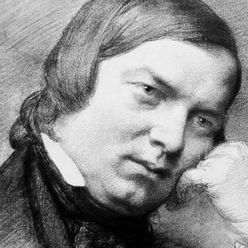
The reception of Schumann's music was and is just as diverse, as bizarre, as the many interpretations of his life and immediate work. The range of images ranges from the “drunkard of feeling” (Nietzsche) to the “most substantial and noble German romantic” (Neumayer), who himself knew that his works were difficult to understand for his contemporaries. Only gradually did one begin to understand Schumann's poetic-musical dual nature, to appreciate and learn to appreciate his sensitive individual art, and to dare to accept his profound music as a completely independent phenomenon, regardless of any categorizations. In this way Schumann got to the innermost essence of human emotions, but much of his art and his rich works are still waiting to be discovered. Much of Schumann's well-known oeuvre will have to be re-understood and interpreted. Shimmering states of mind, the dangerously ingenious, the light and dark sides of the human soul, Schumann knew all of this from himself and knew how to report about it musically. Listening to Schumann therefore also means trying to find yourself. Lively discussions have bene taking place about the medical causes of Schumann's tragic life story, his "psychological schizophrenia", his admission to an "insane asylum" and his death there. Possible diagnoses include depression, psychosis, alcoholism, brain tumor and cerebral syphili. s, so has succeeded through very recent, authentic sources, especially with the help of careful medical differential diagnostics, to objectively come closer to the organic causes of his illness, its possible effects and ultimately his cause of death.
Most of the French composers, from César Franck to Gabriel Fauré, used Schumann for musical orientation in the world of emotions. Claude Debussy, probably his greatest admirer, counted him among the “pure geniuses” and considered him indispensable for the perfection of his musical era.
Author: Stefan Fuchs (Digital translation corrected by Manfred Hecking)